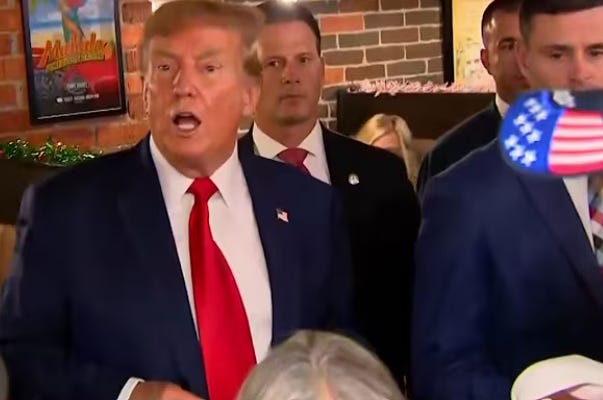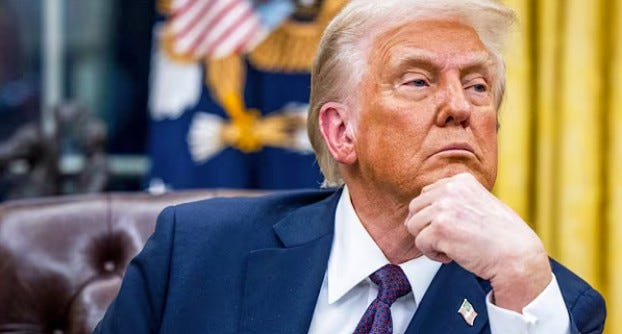On Monday, the Supreme Court stayed a lower court’s decision that had barred the Trump administration from stripping Temporary Protected Status from almost 350,000 Venezuelan immigrants. Now many of these immigrants are expected to face deportation.
Congress created the TPS program to allow undocumented immigrants to stay in the United States if conditions in their country of origin make it impracticable or dangerous to return home. TPS, therefore, isn’t really about the characteristics of any individual immigrants from a given country. It’s about the characteristics of the country itself, and it’s about whether people can safely be sent back.
The secretary of the Department of Homeland Security, in consultation with other agencies, decides whether a country should be given TPS status, which is granted in limited circumstances. A country can be given a TPS designation if it is experiencing an armed conflict that makes it dangerous for people to return. Designations are also granted when a country suffers a severe environmental disaster that disrupts the country so severely that its government cannot adequately handle the return of people.
Finally, there is a catchall, where TPS is granted if extraordinary but temporary conditions make it unsafe to return. This provision does give the government some wiggle room since it can decide that even though such conditions exist, foreign nationals from that country can still be deported if it is contrary to our national interests for them to remain.
Though the administration would never admit it, Venezuela receiving a TPS designation is largely Trump’s own fault. On the last day of his first term, Trump issued an order protecting Venezuelans from removal because “[T]he Maduro regime is responsible for the worst humanitarian crisis in the Western Hemisphere in recent memory. A catastrophic economic crisis and shortages of basic goods and medicine have forced about five million Venezuelans to flee the country, often under dangerous conditions.”
At the end of his term, President Joe Biden extended TPS for an additional 18 months for roughly 600,000 Venezuelans, saying it was necessary because the country continued to face an ongoing humanitarian emergency thanks to the authoritarian actions of its president, Nicolás Maduro. But then came the 2024 presidential election, in which both Trump and running mate JD Vance whipped Ohio residents into a racist frenzy over Haitians with TPS status.
Unlike many of Trump’s other actions, the issue here isn’t that his administration lacks the authority to create or terminate a TPS designation. That authority really does rest wholly with the executive branch. But it’s not a free-for-all.
The TPS statute requires the attorney general to publish the termination notice and the basis for the determination. In other words, there’s a perfectly legal way to terminate the TPS designation for Venezuela, but it takes time and has rules. Here, Homeland Security Secretary Kristi Noem just declared she was “vacating” the Biden administration’s January 2025 extension. She didn’t point to anything having changed in Venezuela. Instead, she seems to have based the termination on her unhappiness with a Biden-era policy of letting people re-register for a designation.
This flimsy pretense makes it galling that the Supreme Court appears willing to give Trump a pass on this, even temporarily. It’s also galling because Trump continues to insist the corrupt Maduro regime is responsible for humanitarian and public health crises, is undermining free elections, coordinates with deadly gangs, and is destabilizing the region. Then there’s the whole part where he’s not sending Venezuelans to Venezuela. He’s largely sending them to a notoriously violent prison in El Salvador.
Monday’s decision felt like even more of a gut punch than usual because it was only three days ago that the court roused itself to extend a small amount of protection to the Venezuelans whom the administration is so bent on deporting. There, the court continued to temporarily bar Trump from using the Alien Enemies Act of 1798 to deport Venezuelans whom he alleges are members of the Tren de Aragua gang. However, that decision applies only to Venezuelans in custody in the Northern District of Texas, where the case was filed.
By letting Trump strip Venezuelans of TPS protection while litigation proceeds, the Supreme Court has functionally agreed that it is no big deal if people get improperly deported, and it ignores that part of a court’s job is to balance the harms.
People who are deported, particularly to a country ravaged by corruption and violence, can’t just snap their fingers and come back to the United States if the Supreme Court ultimately rules their deportation was improper. They will suffer actual, irreparable harm. In contrast, the only harm to the administration is that they have to wait a while for a final ruling before deporting people.
For Trump, though, even a minor delay in establishing his white-supremacist vision is unacceptable—and sadly, it appears that the court agrees.
Campaign Action











